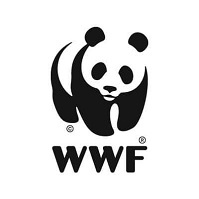Visit the Company Website Send a Message
World Wide Fund for Nature
WHO WE ARE
For 60 years, WWF has worked to help people and nature thrive.
As the world’s leading conservation organization, WWF works in nearly 100 countries.
At every level, we collaborate with people around the world to develop and deliver
innovative solutions that protect communities, wildlife, and the places in which they live.
HOW WE WORK
WWF works to help local communities conserve the natural resources they depend upon; transform
markets and policies toward sustainability; and protect and restore species and their habitats.
Our efforts ensure that the value of nature is reflected in decision-making from a local to a
global scale.
WWF connects cutting-edge conservation science with the collective power of our partners in the
field, more than 1.3 million supporters in the United States and 5 million globally, and our
partnerships with communities, companies, and governments.
Today, human activities put more pressure on nature than ever before, but it’s also humans who have
the power to change this trajectory. Together, we can address the greatest threats to life on this planet
and protect the natural resources that sustain and inspire us.
The World Wide Fund for Nature (WWF) is a Swiss-based international non-governmental
organization founded in 1961 that works in the field of wilderness preservation and
the reduction of human impact on the environment. It was formerly named the World
Wildlife Fund, which remains its official name in Canada and the United States.
WWF is the world's largest conservation organization, with over five million supporters
worldwide, working in more than 100 countries and supporting around 3,000 conservation
and environmental projects. They have invested over $1 billion in more than 12,000
conservation initiatives since 1995.[6] WWF is a foundation with 65% of funding from
individuals and bequests, 17% from government sources (such as the World Bank, DFID,
and USAID) and 8% from corporations in 2020.
WWF aims to stop the degradation of the planet's natural environment and to build a
future in which humans live in harmony with nature. The Living Planet Report has
been published every two years by WWF since 1998; it is based on a Living Planet Index
and ecological footprint calculation. In addition, WWF has launched several notable
worldwide campaigns, including Earth Hour and Debt-for-nature swap, and its current work
is organized around these six areas: food, climate, freshwater, wildlife, forests, and
oceans.
WWF received criticism for its alleged corporate ties and has been reprimanded
for supporting eco-guards that hounded African forest dwellers in the proposed Messok
Dja national park in the Republic of the Congo.
WWF is part of the Steering Group of the Foundations Platform F20, an international
network of foundations and philanthropic organizations.
Website: https://www.worldwildlife.org
See other listings by this user
For 60 years, WWF has worked to help people and nature thrive.
As the world’s leading conservation organization, WWF works in nearly 100 countries.
At every level, we collaborate with people around the world to develop and deliver
innovative solutions that protect communities, wildlife, and the places in which they live.
HOW WE WORK
WWF works to help local communities conserve the natural resources they depend upon; transform
markets and policies toward sustainability; and protect and restore species and their habitats.
Our efforts ensure that the value of nature is reflected in decision-making from a local to a
global scale.
WWF connects cutting-edge conservation science with the collective power of our partners in the
field, more than 1.3 million supporters in the United States and 5 million globally, and our
partnerships with communities, companies, and governments.
Today, human activities put more pressure on nature than ever before, but it’s also humans who have
the power to change this trajectory. Together, we can address the greatest threats to life on this planet
and protect the natural resources that sustain and inspire us.
The World Wide Fund for Nature (WWF) is a Swiss-based international non-governmental
organization founded in 1961 that works in the field of wilderness preservation and
the reduction of human impact on the environment. It was formerly named the World
Wildlife Fund, which remains its official name in Canada and the United States.
WWF is the world's largest conservation organization, with over five million supporters
worldwide, working in more than 100 countries and supporting around 3,000 conservation
and environmental projects. They have invested over $1 billion in more than 12,000
conservation initiatives since 1995.[6] WWF is a foundation with 65% of funding from
individuals and bequests, 17% from government sources (such as the World Bank, DFID,
and USAID) and 8% from corporations in 2020.
WWF aims to stop the degradation of the planet's natural environment and to build a
future in which humans live in harmony with nature. The Living Planet Report has
been published every two years by WWF since 1998; it is based on a Living Planet Index
and ecological footprint calculation. In addition, WWF has launched several notable
worldwide campaigns, including Earth Hour and Debt-for-nature swap, and its current work
is organized around these six areas: food, climate, freshwater, wildlife, forests, and
oceans.
WWF received criticism for its alleged corporate ties and has been reprimanded
for supporting eco-guards that hounded African forest dwellers in the proposed Messok
Dja national park in the Republic of the Congo.
WWF is part of the Steering Group of the Foundations Platform F20, an international
network of foundations and philanthropic organizations.
Website: https://www.worldwildlife.org
See other listings by this user
Listing added on: 08/15/23 , Total hits: 81



